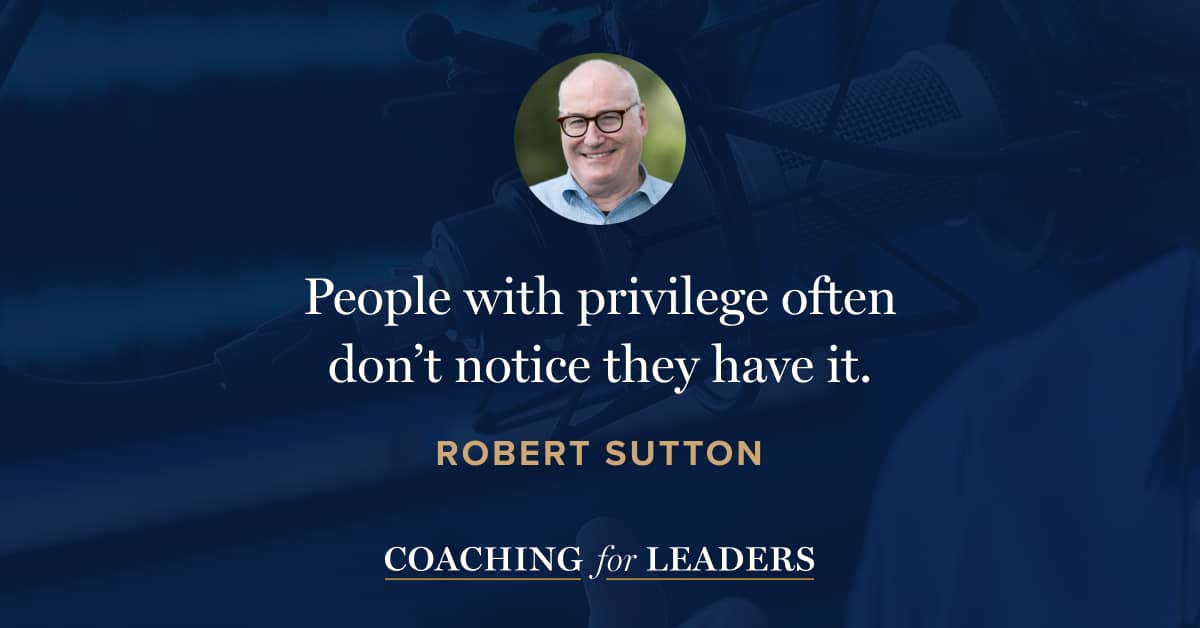Robert Sutton: The Friction Project
Robert Sutton is an organizational psychologist and professor of Management Science and Engineering in the Stanford Engineering School. He has given keynote speeches to more than 200 groups in 20 countries and served on numerous scholarly editorial boards. Bob's work has been featured in The New York Times, BusinessWeek, The Atlantic, Financial Times, The Wall Street Journal, Vanity Fair, and The Washington Post.
He is a frequent guest on various television and radio programs, and has written seven books and two edited volumes, including the bestsellers The No A-hole Rule, Good Boss, Bad Boss, and Scaling Up Excellence. He is the co-author with Huggy Rao of The Friction Project: How Smart Leaders Make the Right Things Easier and the Wrong Things Harder*.
We’ve all worked with someone who seemed just a bit oblivious. None of us want to be that kind of leader. In this conversation, Bob and I discuss key strategies for how to stop it and also prevent it.
Key Points
- Privilege spares you hassles, but has a cost. You risk cluelessness about troubles in the organization.
- Power and prestige can cause leaders to focus more on themselves, less on others, and act like the rules don’t apply to them.
- An antidote to oblivious leadership is less transmission and more reception. Measure two behaviors: (1) how much the leader talks vs. others in interactions and (2) the ratio of questions the leader asks vs. statements the leader makes.
- Either manage by walking out of the room or get into the details with ride alongs, direct help, and doing the work with folks. Be cautious about “managing by walking around” getting ritualistic.
- Hierarchy is inevitable and useful. The most effective leaders flex it by knowing when to collaborate and when to direct.
Resources Mentioned
- The Friction Project: How Smart Leaders Make the Right Things Easier and the Wrong Things Harder* by Robert Sutton and Huggy Rao
Interview Notes
Download my interview notes in PDF format (free membership required).
Related Episodes
- Use Power for Good and Not Evil, with Dacher Keltner (episode 254)
- How to Ask Better Questions, with David Marquet (episode 454)
- How to Help People Speak Truth to Power, with Megan Reitz (episode 597)
- How to Prevent a Team From Repeating Mistakes, with Robert “Cujo” Teschner (episode 660)
Discover More
Activate your free membership for full access to the entire library of interviews since 2011, searchable by topic. To accelerate your learning, uncover more inside Coaching for Leaders Plus.





